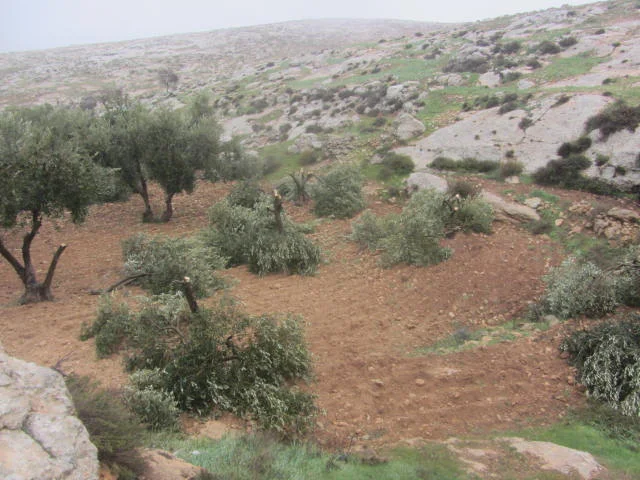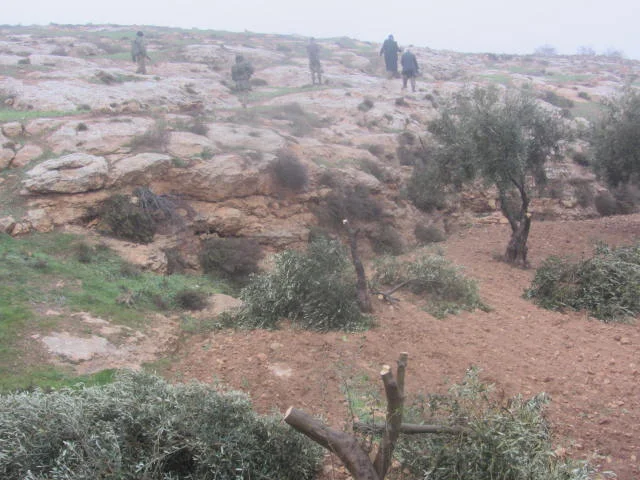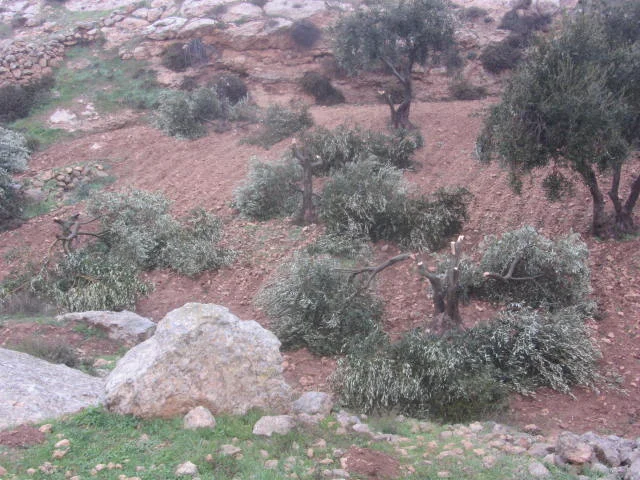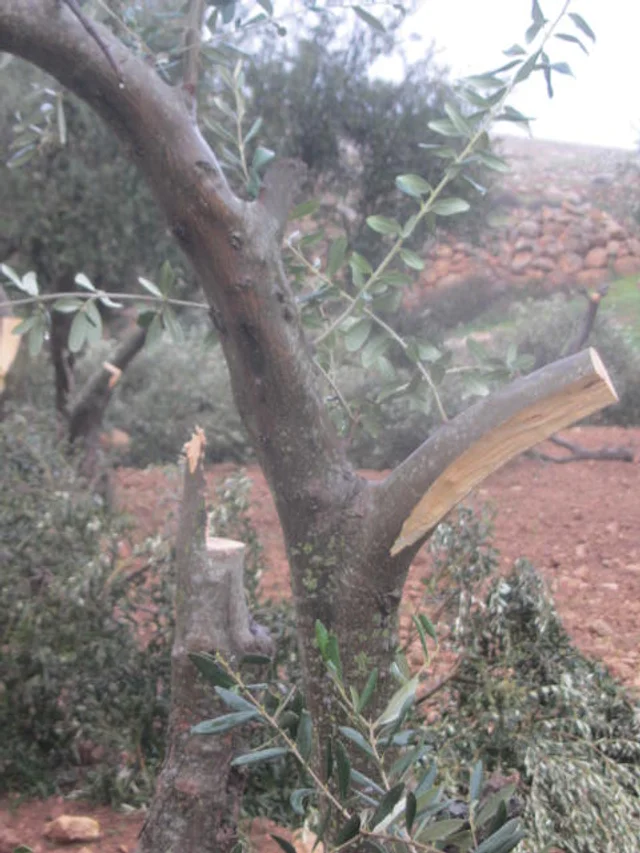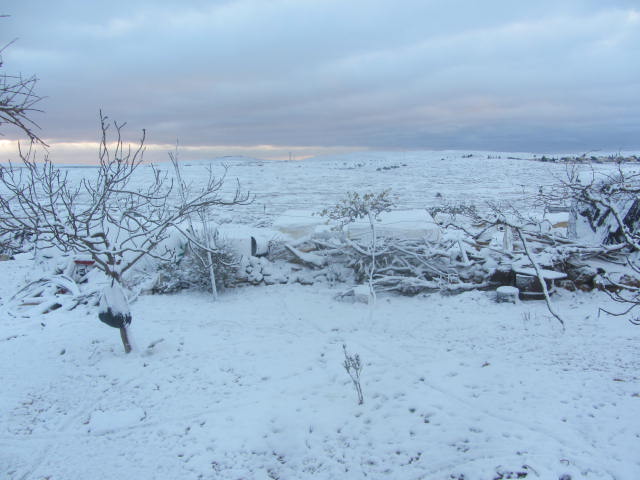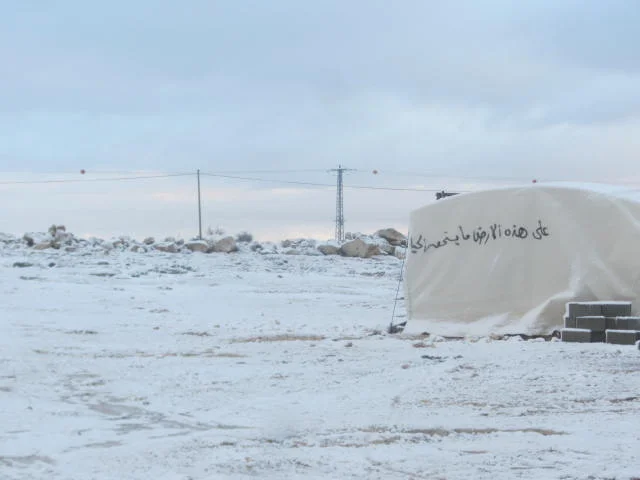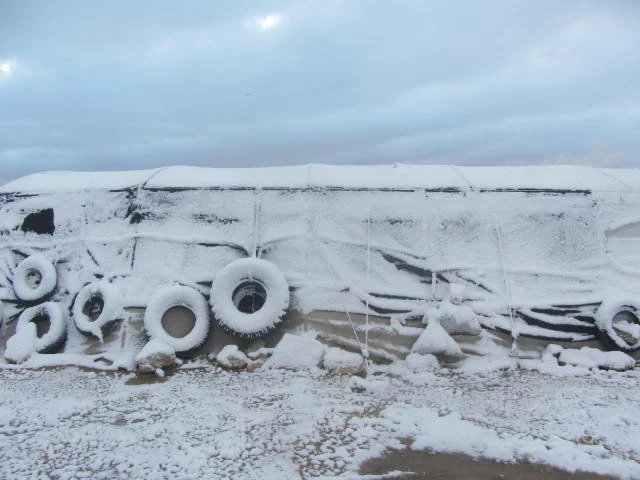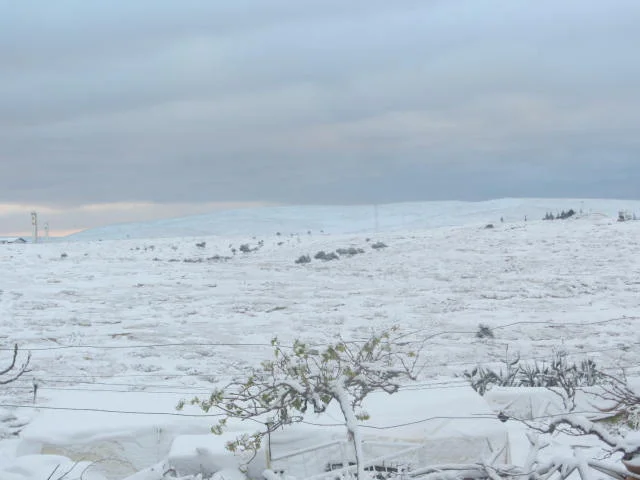Desert Snows
Reposted with permission from Erella and the Villages Group (https://villagesgroup.wordpress.com/)
January 9, 2015
*Desert Snows*
This time I am almost ashamed of the story I am about to tell, as the whole
world is dealing with the unbearable mega-terror-attack on France, and
while here in Israel people – even since before the attack - are still busy
with the unusually harsh stormy and snow conditions here at the moment. And
perhaps in spite or because of my shame, I should tell it.
I live in a farming community in the northern Negev, where the desert
begins. A place not blessed with abundant rainfall or groundwater. The
South Hebron Hills, too, lying about 60-70 km east of where I live, is an
area even drier than ours. Some of my good friends live there, mostly
farmers and shepherds. Year after year, as winter descends, I get a phone
call from Nasser, Ali and Eid who live in various hamlets in the South
Hebron Hills, asking whether rain has already fallen in our village and how
our fields are doing. They tell me about theirs, and about their water
holes – the main and sometimes only source of water for them for both human
and animal consumption the whole year long – which the Occupation
authorities repeatedly destroy, and do not even allow the Palestinians to
connect to other water sources.
All of last week we exchanged reports of the plentiful rains that fell both
on my village and on theirs. Today Nasser called to ask whether we were
having snow. They – at the altitude of 800-900 meters above sea level –
have been having snow for two days now, but they heard on the radio that
snow was falling even at 400 meters. “We are at 200 meters’ altitude” I
answered, “and snow is a very rare sight”. And since we were already
talking, I asked Nasser whether Ahmad and Laish (his children) managed to
put together the puzzle I had brought them last week. “Yes”, he answered.
“It became a family activity”. We continue chatting. I even disclose that I
did not take part in our weekly visit last Thursday because my back was
giving me too much trouble. “I wasn’t home either”, he said. “I was
working. I went to document the cutting down of olive trees in the area”.
Shocked at the timing (not at the sabotage itself), I asked: “What!? Even
in such freezing weather, in a snow storm!?” “All the better”, Nasser
answered.
“Yesterday morning”, he says, his voice sounding as routine as if we are
still talking about the puzzle, “during a brief pause in the snowfall,
farmers of Qawawis near Susya, and farmers from Yatta whose lands lie close
to Qawawis, went out to check the water situation in the water holes of
their plots. The holes were filled with water. Then they noticed 42 olive
trees, 32 years old, lying sawed near Qawawis on the side of the grove next
to Havat Yair settlement, and some 200 one-to-seven-year old olive trees
uprooted and broken near Qawawis across the road.” Thus Nasser. I remain
silent.
The water in their holes was given them by God. The sawed-down trees they
discovered were destroyed by men. With and without a saw. Thus I say to
myself after we are done with our telephone conversation which was not at
all meant to touch on this subject. One more banal story. Another abnormal
episode that becomes normal in a reality where even the complaint about
evil-doing comes like falling summer rain.
*When the crimes pile up, they become invisible.*
*When the suffering becomes unbearable no one*
*Hears the cries any more.*
*They too fall like summer rain. *(Bertolt Brecht)
This attack will not make waves in the media. The attack in France, too,
will soon enough fall away like summer rain. They both belong to the
blindness of their perpetrators.
And God? He is present in the waterholes. The God of small things…
Erella

